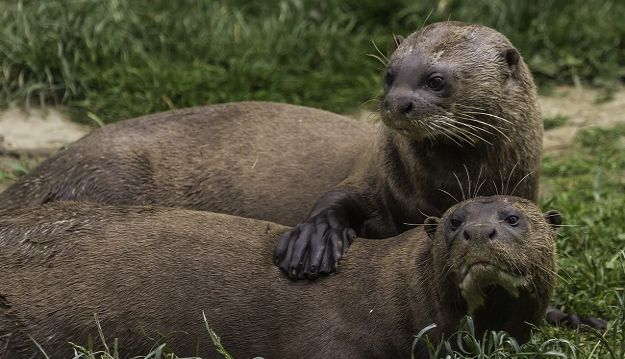
All creatures great and small have had their vital statistics logged in the annual audit at Yorkshire Wildlife Park.
Staff deployed a range of devices from micrometer measuring devices for insects through to huge high-tech weighing scales for some of the largest animals at the award-winning park. The task requires patience and ingenuity to detail more than 400 animals from 70 different species who live at the 150-acre park at Branton, near Doncaster. It also needs a few tasty, festive treats to entice the animals to step on the scales.
Getting a ring-tailed lemur, wallaby or meerkat to stay still long enough to measure entails some strategic morsels of food and a deft touch with a tape measure while rhinos and polar bears present problems at the other end of the spectrum.
“Our rangers are experts at handling the animals and making sure they are at their most comfortable,” said Head of Animals Debbie Porter. “Nothing is rushed and the entire audit takes about a week.
“Our staff love the animals they care for and actually enjoy the chance to spend time up close to them, even if simple counting, weighing and measuring tasks can take longer than expected.”
The 2020 audit features new arrivals at the park this with three new Polar bears, the birth of a critically endangered Roloway Monkey – one of only three born in the world this year – the birth of many Wallaby joeys and three Black Rhinos, who were welcomed to the park back in November.
The park is home to some of the most endangered species, such as the Rothschild’s Giraffe, Amur Tigers, Red-Bellied Lemurs and African Painted Dogs. Alongside Yorkshire Wildlife Park Foundation, the park is at the forefront of animal conservation around the world.
There is a very serious point to the animal audit and annual stocktake. Yorkshire Wildlife Park is one of 1,100+ zoos, aquariums and other wildlife member organisations involving over 1,100 animal care professionals use the ZIMS (Zoological Information Management Software) to help them achieve best practice animal management and conservation goals. The aim of the shared database is to advance global collaboration and information sharing for zoos around the world to help further the knowledge of animal populations and share vital species information. The information is integrated into a master database that includes millions of records on more than 22,000 species and ten million individual animals.





